Table of Contents
Creating an affiliate program can be an excellent way to boost sales and expand your reach. However, this tactic requires some complex processes and management.
Therefore, in order to streamline your affiliate strategy, you’ll need to effectively deliver crucial information on your program's web pages.
When you prioritize some key pages, you can set the foundation for a successful affiliate program. By featuring an easy-to-use application page, an interesting about page, and an affiliate dashboard, you can attract and maintain quality affiliate marketers.
In this article, we'll show you how to create 5 of the most important pages for your affiliate program. Along the way, we'll provide additional suggestions that can help you optimize your affiliate business. Let’s get started!
1. An Affiliate Application Page
First off, an affiliate application page is vital for every affiliate program. While there are other ways to promote and manage your program, an affiliate application page offers an effective way to attract partners organically.
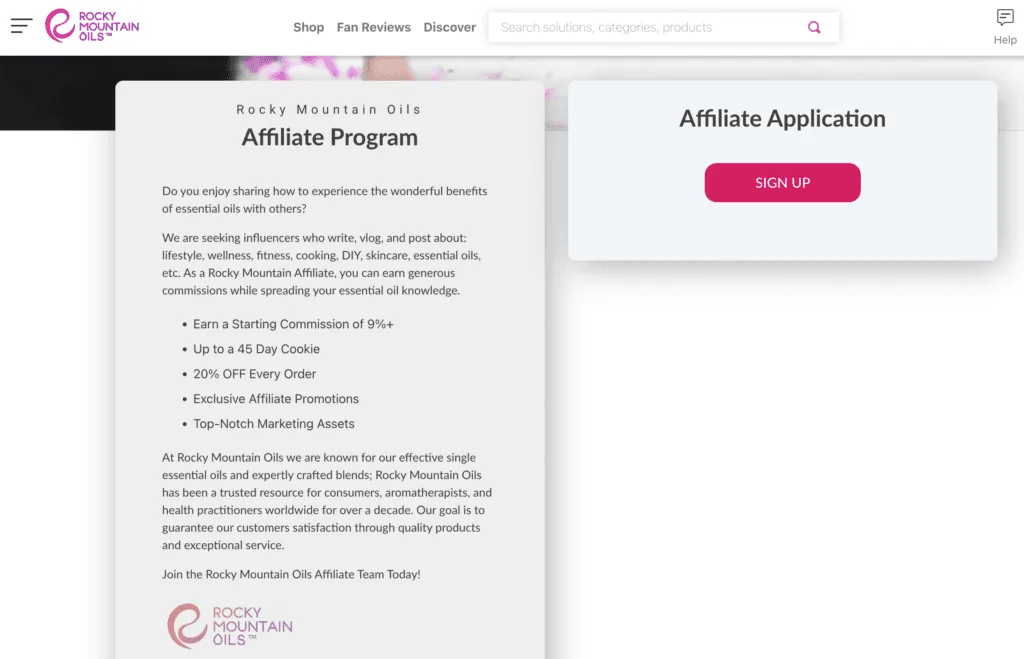
This page should include access to your application, whether that be an online form or a downloadable document. In addition, think of it as your sales pitch for attracting affiliates who can help you grow your business.
What's more, this application page allows you to screen potential partners. Therefore, it's wise to ask for any information you might need to ensure applicants align with your company values and affiliate goals.
If you're looking for a tool to help you with this, our Easy Affiliate plugin provides a built-in application process, making it easy to add this page to any WordPress website. You can automatically generate the dashboard, login, and signup pages in just a few clicks.
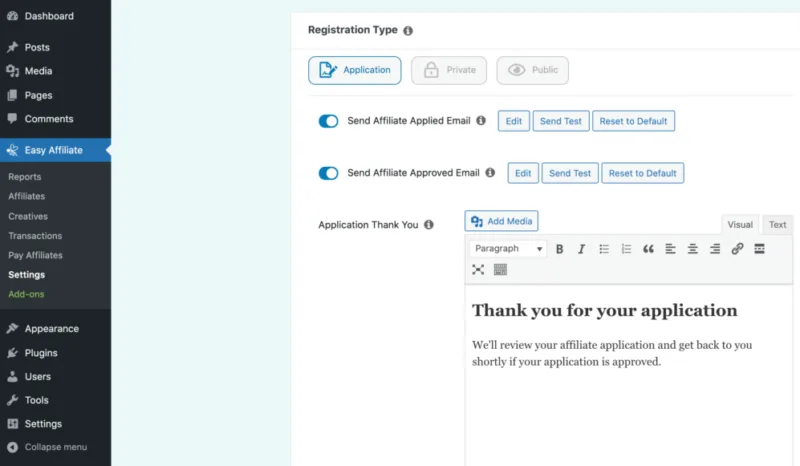
Simply select the options you want to use and configure your application details. You can even test out your application and add media to your custom thank you message.
2. A Contact Page
A contact page is important for prospective affiliates who have questions about your program or products. Ideally, this page will provide multiple ways for your visitors to get in touch with you.
Email is the standard for most websites, so you may want to have a designated email address for communicating with your affiliate partners. If you use additional communication tools, such as phone or chat, you can highlight them here too:
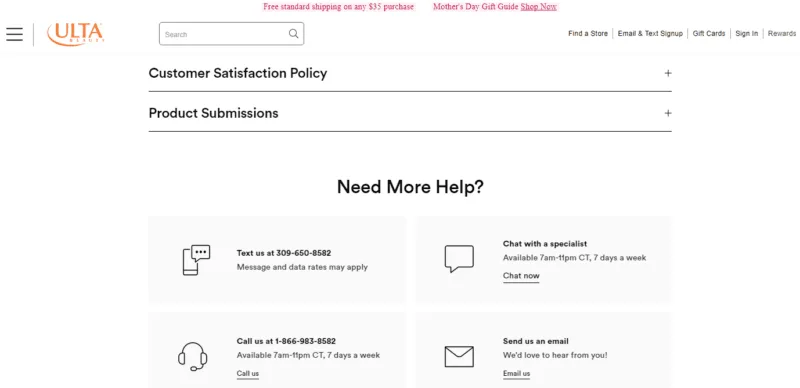
This page can be particularly useful for anyone who is on the fence about completing an affiliate application. That's because, even if you provide contact information in the application or elsewhere, potential partners (and website visitors in general) will often look to a contact page first when they are in doubt.
3. A Helpful Resource Page
Your resource page can be designed specifically for affiliates or provide more general information, linking out to specific topics. Either way, this will be a key page for your program. That's because providing your affiliates with inside information and helpful content can help set them up for success.
Your affiliate resource page can include marketing materials such as banners, videos, and images. Additionally, you may want to provide more targeted tools such as affiliate link generators and embeddable content.
Moreover, when you provide affiliates with branded marketing materials to promote your business, you can help maintain your brand's reputation. Plus, your efforts can enable your affiliates to more effectively drive sales.
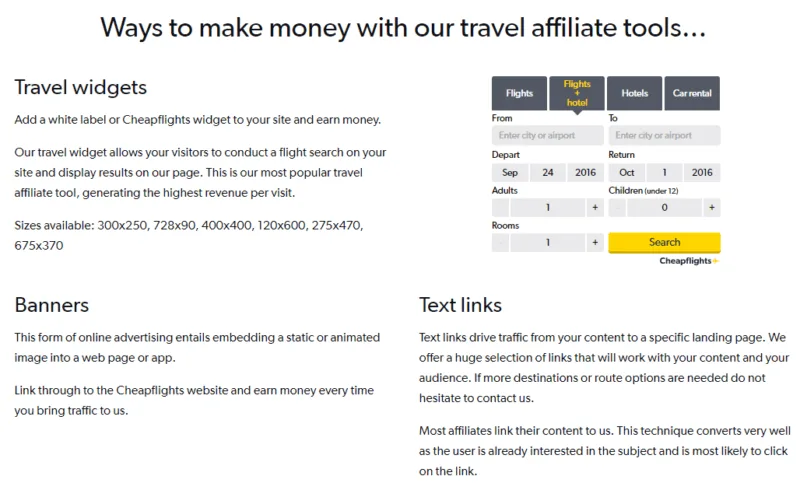
Other useful resources like limited-time promotion content, special offers, and product documentation can all be used by affiliates to effectively advertise your business. If you already have a collection of this type of content, be sure to share it with your affiliate partners.
4. An Interesting About Page
An about page may not be something you think about when it comes to an affiliate program, but it can be very valuable for branding purposes.
Affiliates interested in marketing your products will likely look here for more information about your business. You can use this page to provide marketable talking points, like awards and achievements.
Your affiliates can then use this information to promote your products.
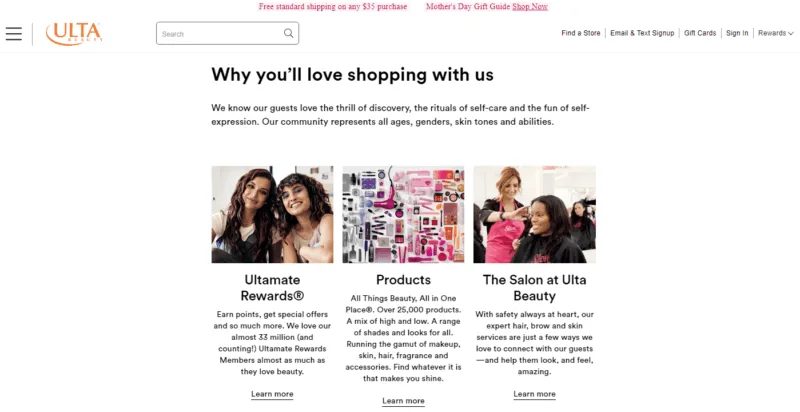
Think of your about page as an opportunity to sell your business and highlight what makes you and your products special. Including details about your company's history and goals can help tell a story that your affiliates can share with customers.
5. An Affiliate Dashboard
An affiliate dashboard provides affiliates with all of the relevant information pertaining to your partnership. This can include commission tracking, quick links to marketing material, and details about your affiliate program.
When you provide a dashboard with customized data and resources, your program will have a more professional touch. This can help build a positive affiliate experience and attract new partners.
Easy Affiliate offers a highly-intuitive affiliate dashboard, so your affiliate marketers can track their progress and generate affiliate links with ease:
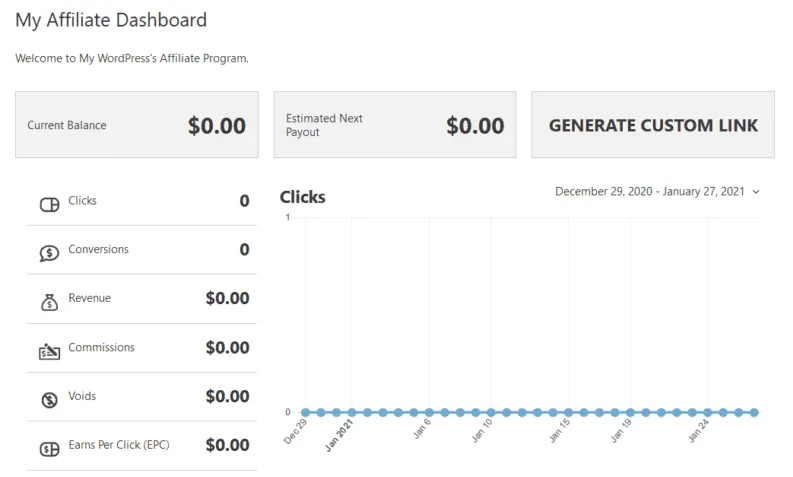
Plus, watching commissions grow will likely be a fun and exciting motivator for your brand ambassadors. An affiliate dashboard can also help them see which of their posts or methods are most successful by tracking conversions, clicks, and more.
Conclusion
Running a successful affiliate marketing program can be a challenge. That's why developing a good foundation from the beginning is key. For instance, you’ll want to ensure that you have the most important pages set up properly on your site.
To recap, here are 5 essential pages for your affiliate programs:
- An affiliate application page
- A contact page
- A resource page
- An about page
- An affiliate dashboard
Do you have any questions about what to include on these important web pages? Let us know in the comments below!
If you liked this article, follow us on Twitter, Facebook, Pinterest, and LinkedIn. And don't forget to subscribe to our newsletter!

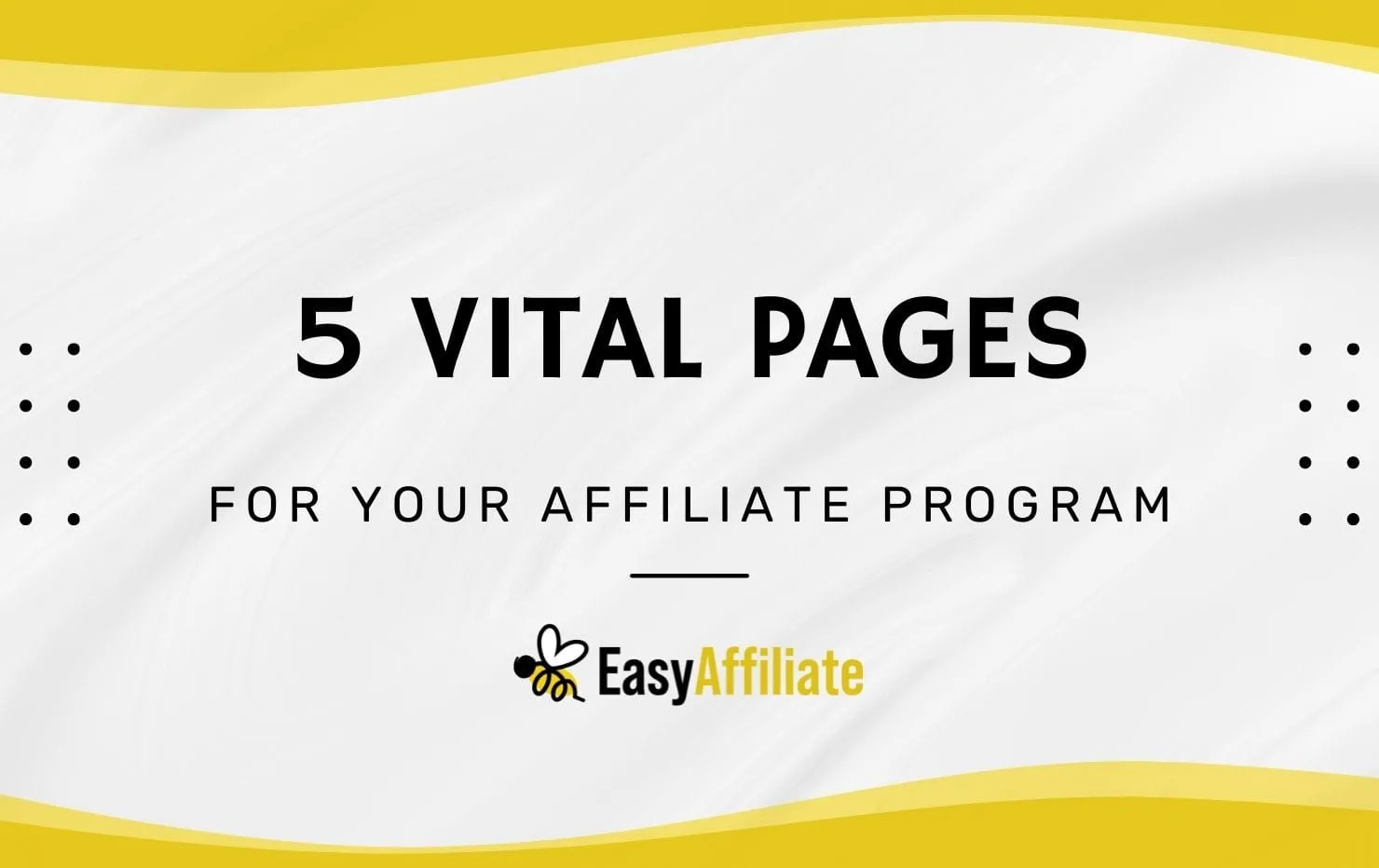

Leave a Reply